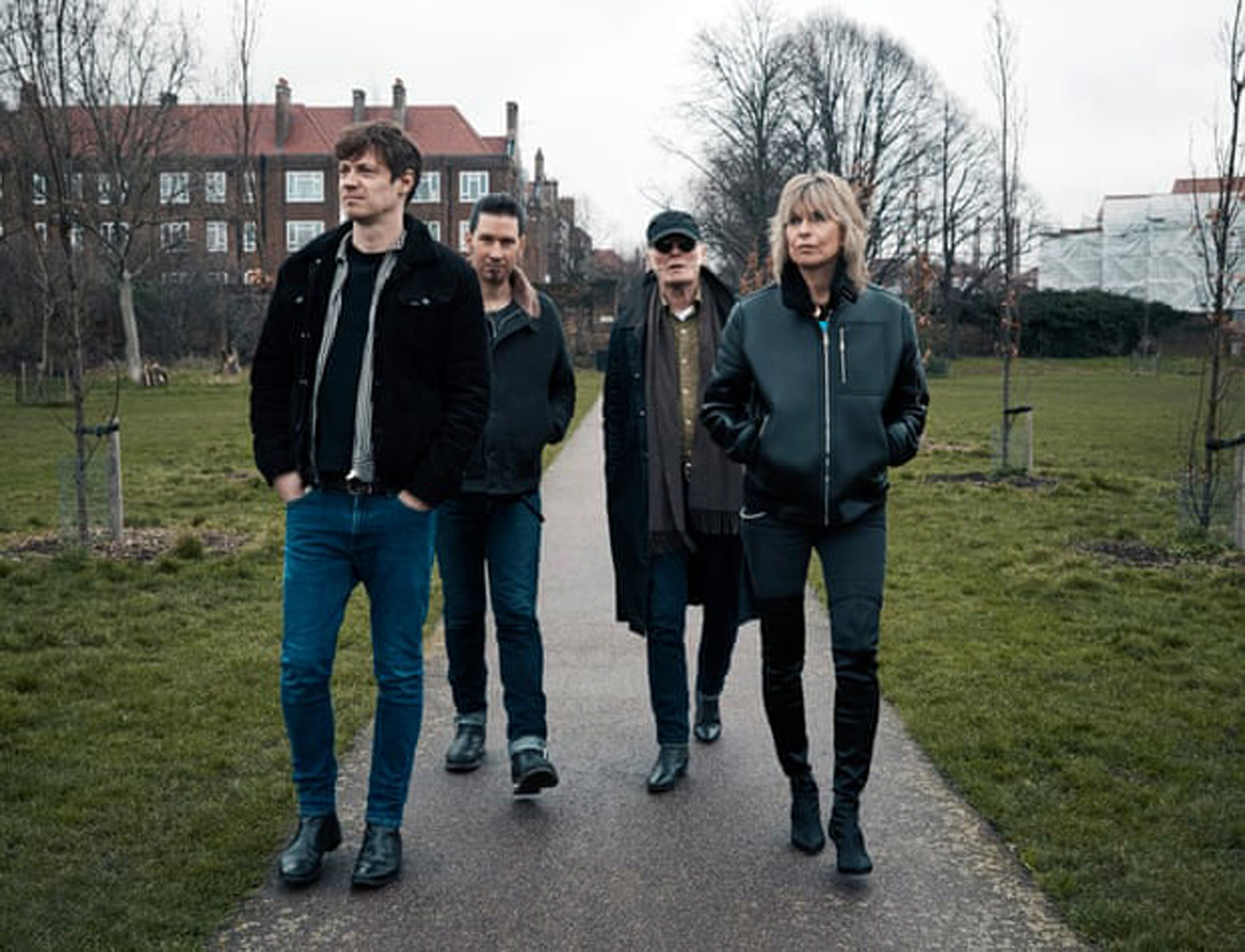(DESPOTZ RECORDS; 2020)

Clearly I have GOT to get myself to Scandinavia. I’ve known that for a while, but it was mostly based on my passion for a few Norwegian acts specifically. But the more I hear of bands influenced by the apparently endless deep forests of Finland and especially Sweden, the more I want to see that influence for myself. Apparently those endless woods make musicians of the region want to write brooding, proggy song cycles about life, love, hours contemplating the meaning of it all, and yes, “tales to be told” in music. That’s the title of this brand-new album by Lykantropi, a group sewing up good reviews and a fast-growing fan base due to their ‘70s rock evoking brand of psych, which is delivered in a perfectly comfortable ensemble guitar, flute and mixed-gender vocals. You need know NOTHING about Nordic spells or landscapes to appreciate this stuff. But it helps if you like Jethro Tull, Blue Oyster Cult, the Moody Blues and yep, even prog kings Yes, since the sounds on TALES TO BE TOLD bring all of those legends to mind.

Martin Ostlund and My Shaolin trade off on male-female lead vocals and often combine for strong harmonies that will remind you of lots of stuff you grew up on in the ‘70s. That’s no slight; it’s a brisk and invigorating sound when combined with the thoroughly confident guitar riffing on tracks like “Coming Your Way,” “Mother of Envy” and “Axis of Margaret,” which is a good solid tune to sample if you’re in a hurry. On “Coming… ,” the repeated simple chorus of “Close your eyes before it’s too late” tends to stick in your mind, and as much as I’d like to ask the band specifically what they MEAN with that lyric, I’ll just take it at face value. The sturdy and melodic title track and the showcase tune “Kom ta mig ut,” which has a striking accompanying video. show a band that is impressively disciplined, one that has obviously heard a few Yes and Genesis albums, yet they rarely indulge in guitar solos or anything at all that could be called “ponderous.” They seem to be purveyors of a surging sonic current that moves forward, but always provides just the right framework for the two vocalists to be heard over, and for the atmosphere to envelop the listener. I really like the accessible arrangement on “Mother of Envy” and the expansive but breathing normally space of “Varlden gar vidare,” which yes, is sung in Swedish but it doesn’t matter. It’s the whole landscape of the piece that draws you in, not individual lyrics. The instrumental work here is exemplary, with Lo Oberg’s flute work deserving special mention. If you want lyrics you understand to sink your teeth into, go with “Coming Your Way” or “Spell On Me,” which made me listen a few times to catch the lyric “”The only time I feel all right is when I’m by your side,” and its slight variation. Others can discuss if the Kinks tune “All Day and All of the Night” and the similar lyric may have been in the heads of the songwriters, but it’s more likely that this universal expression of love and existential angst gripped the pens of Lykantropi’s songwriters same as it does for us Yankee types. Even if they do have better forests and more precise language skills over in Scandi-land.
TALES TO BE TOLD isn’t all that groundbreaking; you’ve heard this sort of psych-y, proggy idiom before. But it’s unquestionably more self-assured and sincere than the umpteen generations of American bands that have been trafficking in this sound since the halcyon era of the ‘70s. And I’ll take the Swedish focused cool and inter-band solidarity we get here over any number of second-rate progsters garnering column inches elsewhere. Three or four albums in, Lykantropi seem to know what they’re doing, and they have the lineup and dedication they need to stay in this for the long run. Give ’em a listen, and then listen again. If, like me, you have all the reference points in you already, the sense of familiarity will be welcome and even a bit emotional.




























